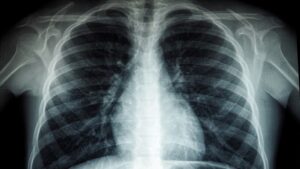[ad_1]
PROSTATE CANCER WHY?
Prostate cancer develops in the prostate, a small walnut-shaped gland that is part of a man’s reproductive system. Prostate cancer occurs when cells in the prostate gland grow out of control. Cancerous cells first show uncontrolled growth and spread into the prostate.
Then it extends into the capsule surrounding the prostate, pierces the capsule and spreads outward from the prostate. Prostate cancer, unlike benign prostate gland enlargement, does not originate from the center of the prostate, but from the region close to the capsule, away from the center. For this reason, urinary complaints in prostate cancer bother the patient at a later stage.
During the period of growth and spread, it can spread to nearby organs, the lymph system and other parts of the body through the bloodstream. Prostate cancer has a slow course and the tumor can spread to bones and other organs by showing a very aggressive character.
WHAT CAUSES PROSTATE CANCER?
The most important risk factors for prostate cancer are age and family history.
Age
The incidence of prostate cancer increases with age. Microscopic prostate cancer is detected in 50 percent of men over the age of 70 and in almost all of those over the age of 90. The disease is not common in individuals younger than 50 years of age.
For this reason, prostate cancer screening is recommended for men over 50 for early detection.
Family History
Studies have revealed that about 15% of patients have a history of prostate cancer in other family members. Some gene groups responsible for the formation of prostate cancer have been identified.
In addition to these, obesity and smoking are among the risk factors identified for prostate cancer.
WHAT ARE THE SYMPTOMS OF PROSTATE CANCER?
Symptoms of prostate cancer may occur depending on the progression of the disease. In this respect, it is an insidious disease. Especially in the early stages, no symptoms and complaints may be seen.
When prostate cancer symptoms appear, regular doctor check-ups are of great importance in the success of treatment, as the patient may lose some of their treatment chances.
Prostate cancer symptoms can be listed as follows:
– Difficulty urinating
– Decreased force in urine flow
– Blood in the semen or urine
– Pain during ejaculation
– Discomfort in the groin area
– Bone pains
– Erectile dysfunction.
These symptoms that herald prostate cancer can sometimes be an indication of benign prostate enlargement.
Similar symptoms and complaints can be seen in benign prostatic hyperplasia (benign enlargement of the prostate) that develops due to enlargement of the prostate gland.
If prostate cancer has spread to other parts and organs of the body, it may also give symptoms related to that area.
Follow NTV on social media
[ad_2]
Source link






